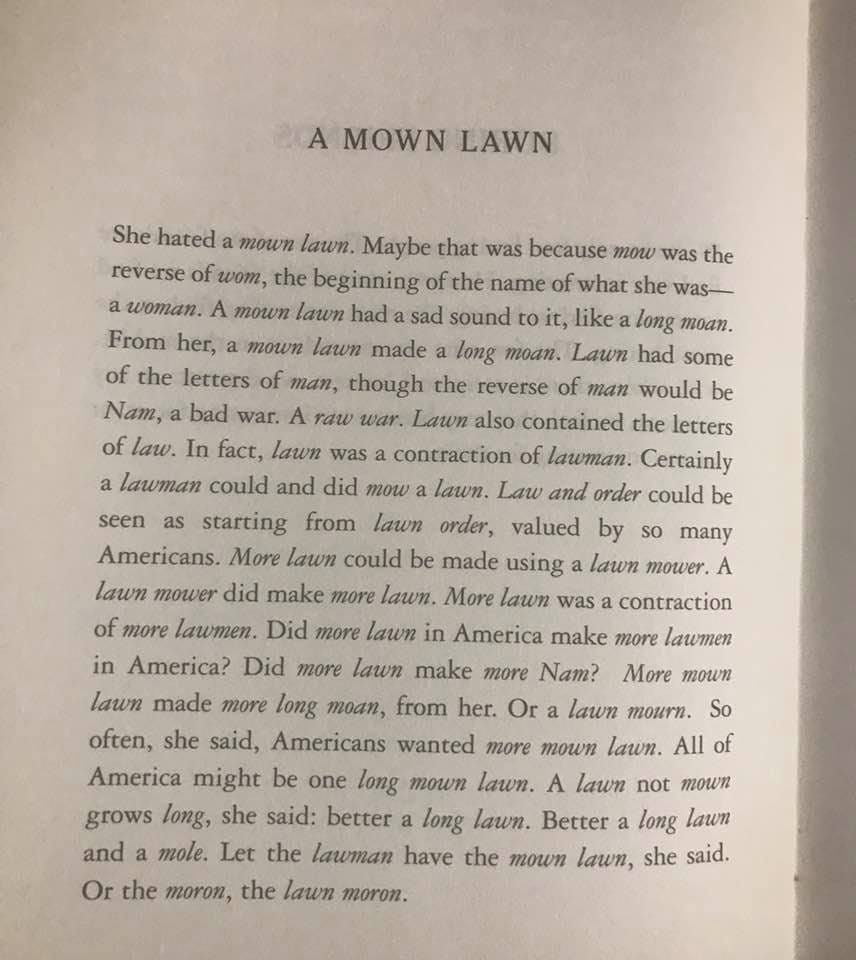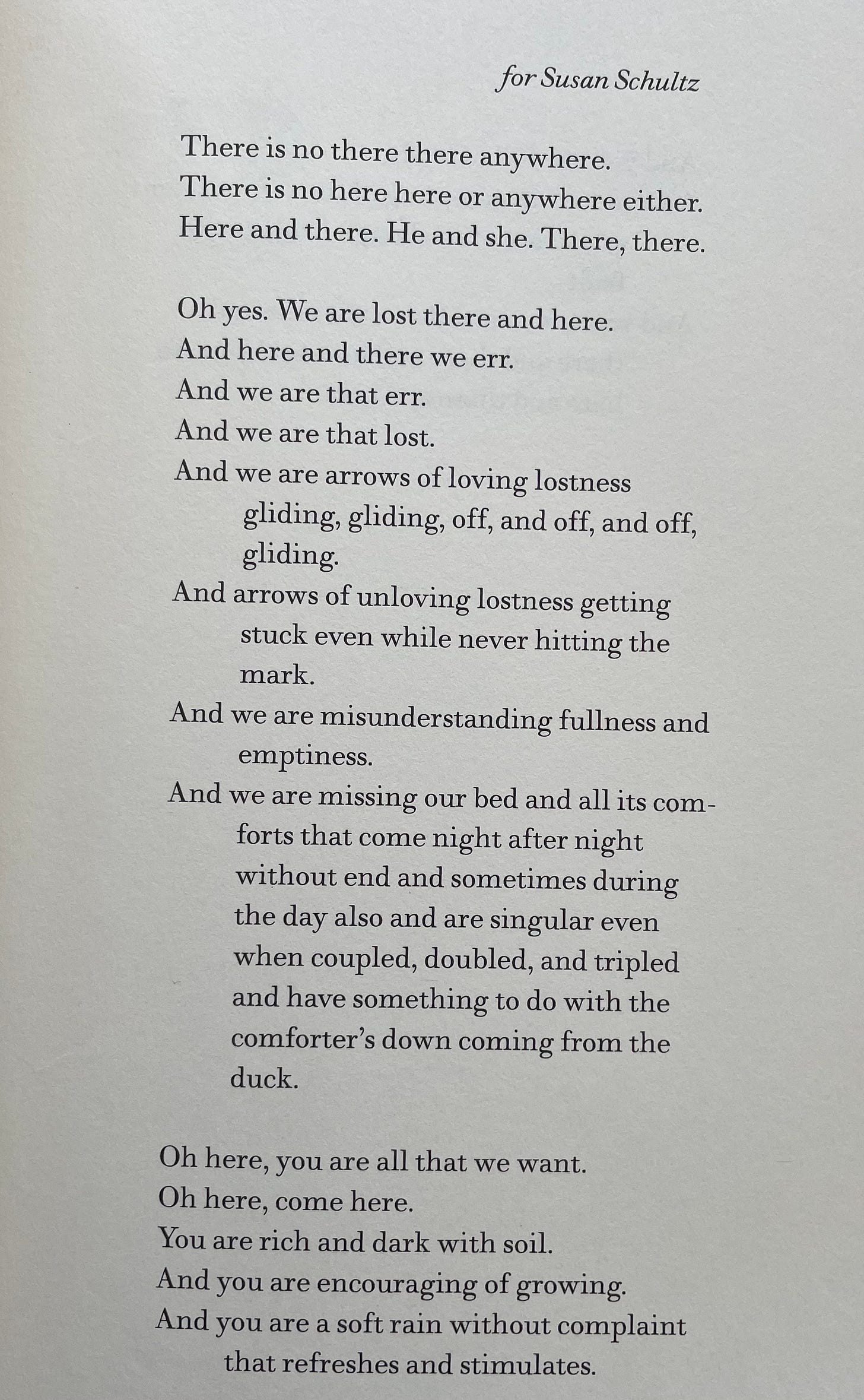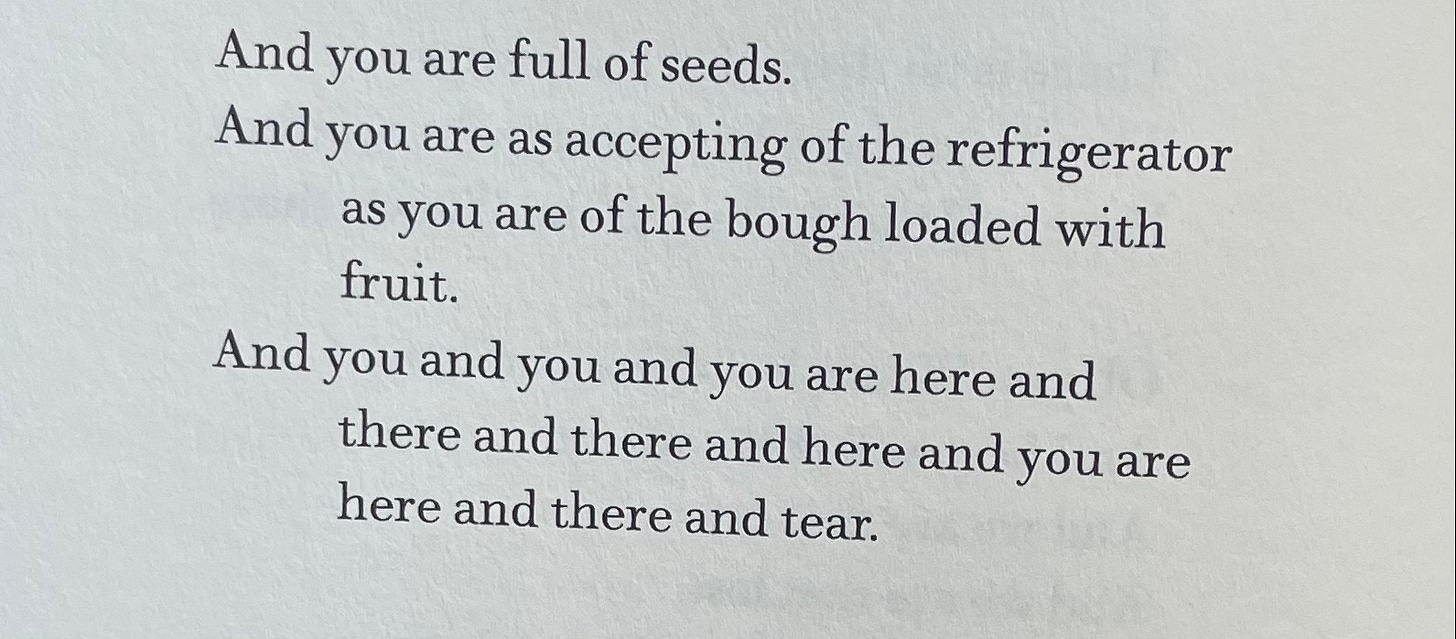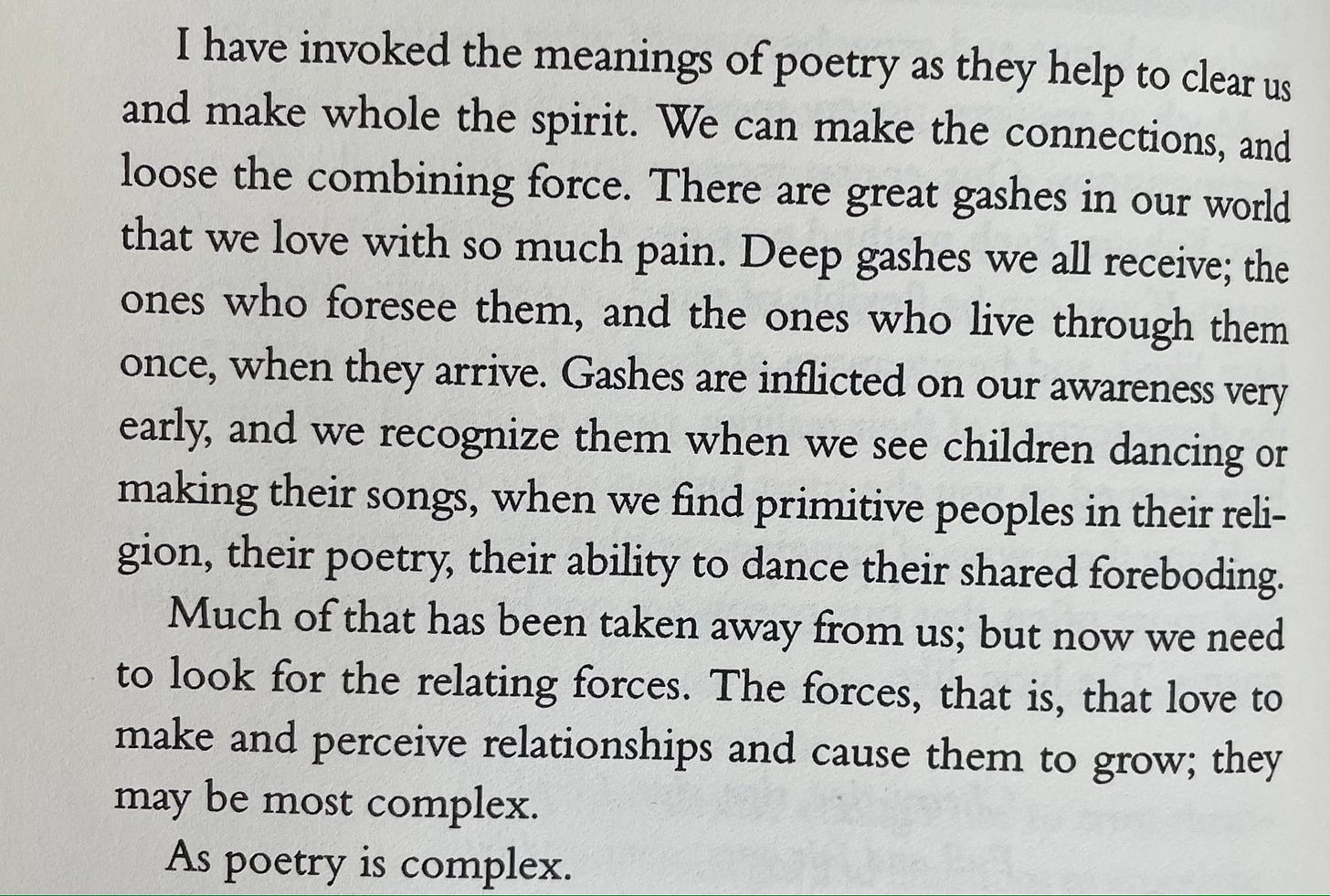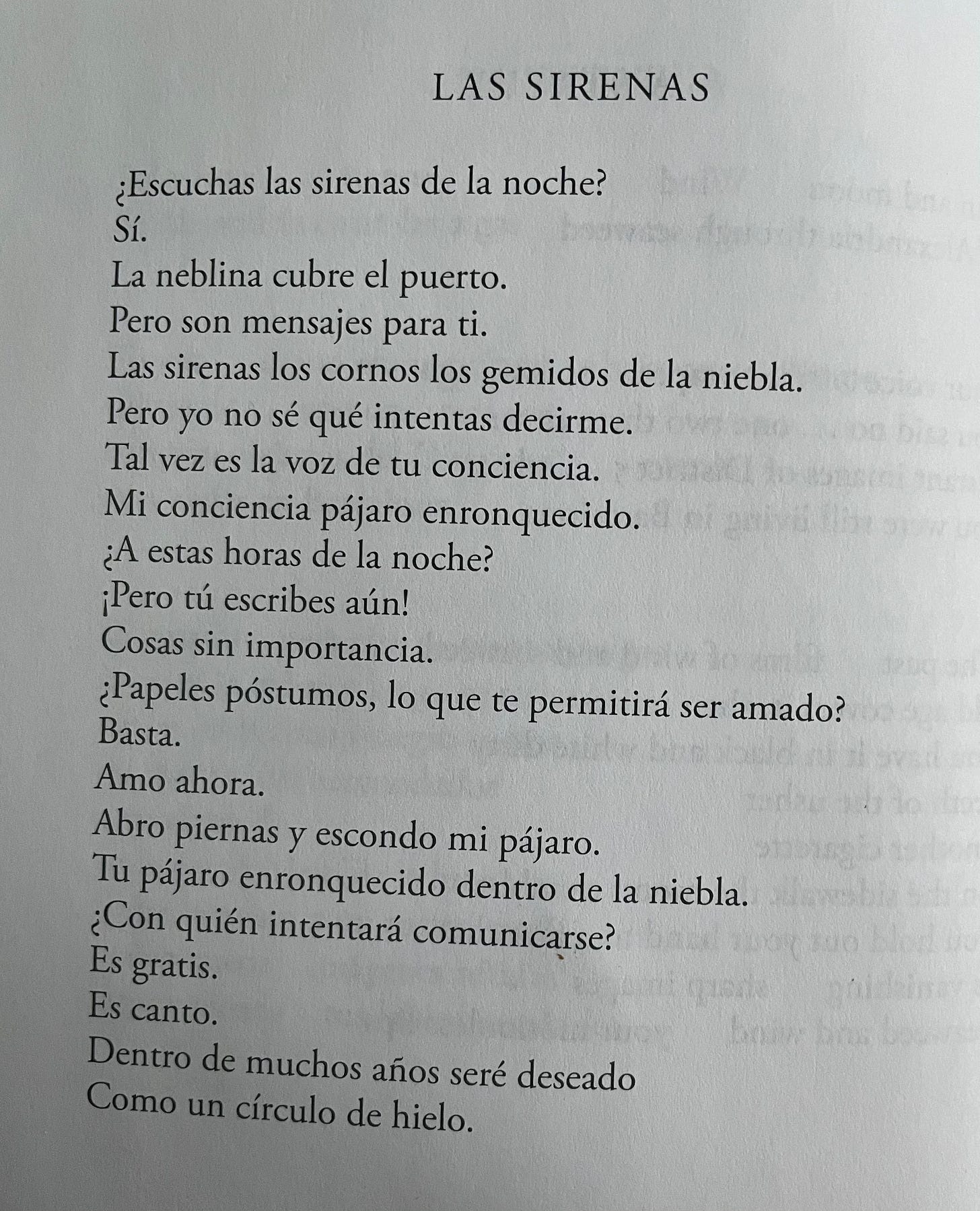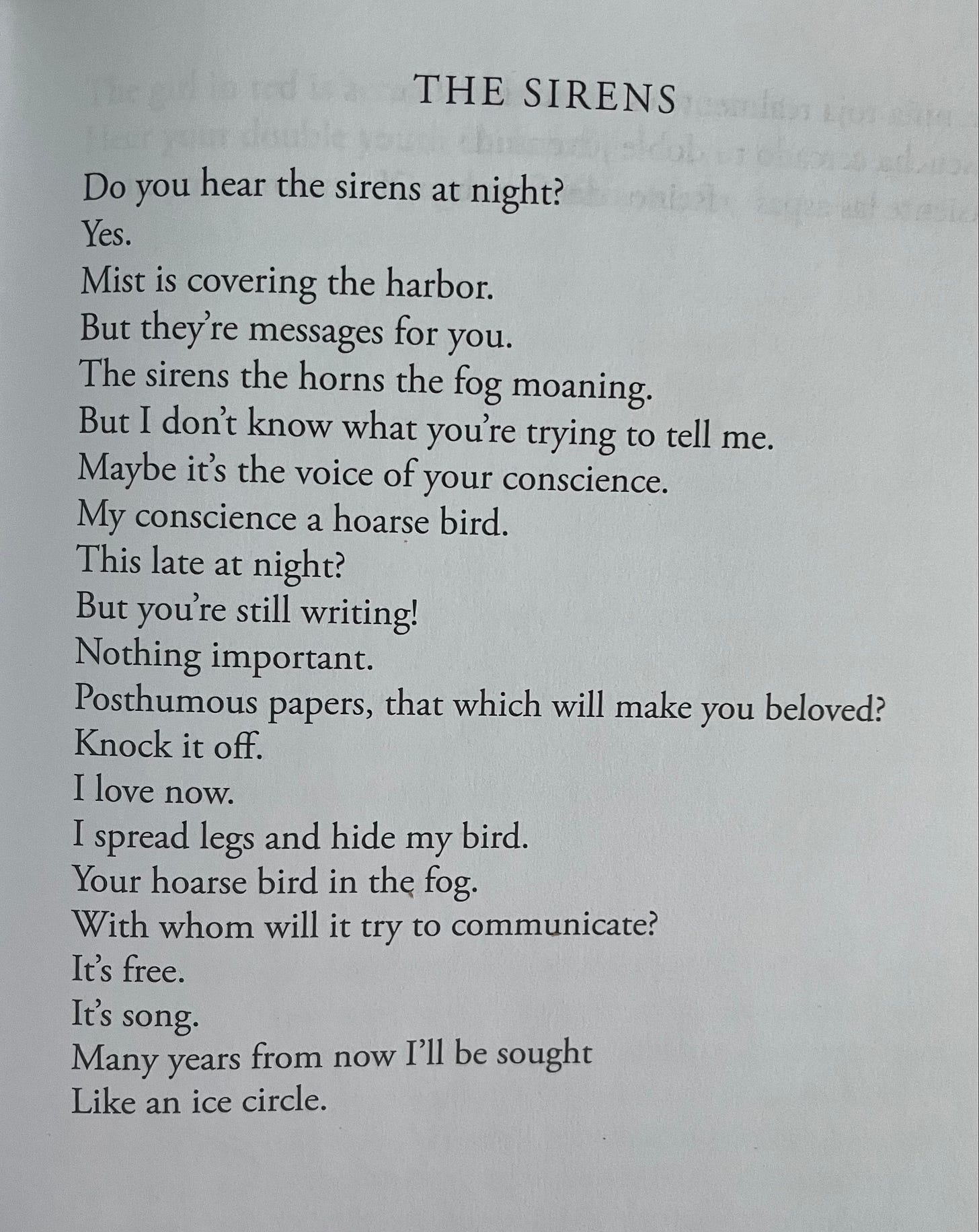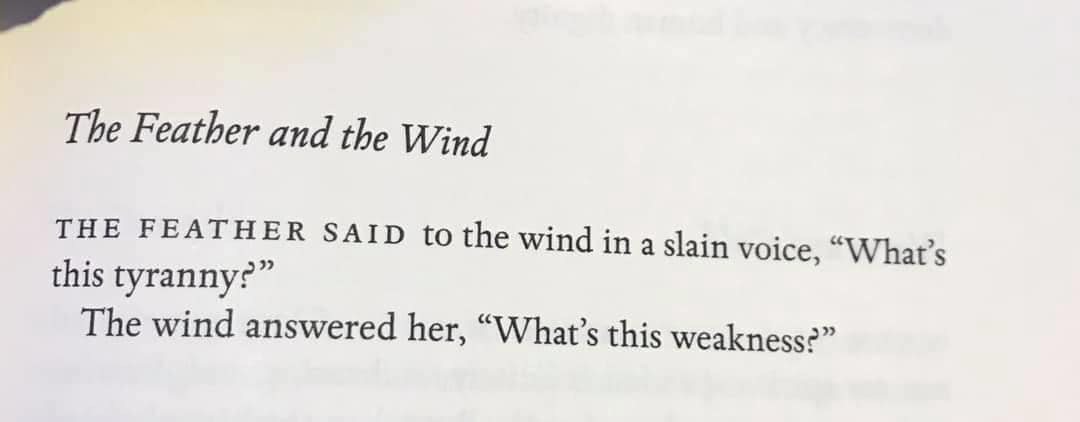"in a slain voice"
Davis, Spahr, Gilbert, Rukeyser, Bolaño, Mead, Alomar
Lydia Davis:
Juliana Spahr:
Jack Gilbert:
If I’m writing well it comes to an end with an almost-audible click. When I started out I wouldn’t write a poem until I knew the first line and the last line and what it was about and what would make it a success. I was a tyrant and I was good at it. But the most important day in my career as a writer was when Linda said, Did you ever think of listening to your poems? And my poetry changed. I didn’t give up making precreated poetry, but you have to write a poem the way you ride a horse—you have to know what to do with it.
Muriel Rukeyser:
Roberto Bolaño (trans. Laura Healy):
Jane Mead:
Writing a poem is often a kind of exploration of mind and material, self acting on subject, subject acting on self….and the hardest but most important part is staying open to the surprise such interaction might reveal. The poem’s a record of that dynamic, those fits and starts of thinking…and so it is natural that pace would shift, just as our pace shifts in thought or conversation. You get to a certain point, and skip forward. I’m impatient. Once I grasp something, I want to move on. I’m not good at explaining. I’m not good at long descriptions. A large part of my revision process involves determining the moments when shifts in pace are integral to how I’ve come to see the overall movement of the poem—and honing those moments.
Osama Alomar (trans. C.J. Collins and Osama Alomar):
About Sean Singer
Sean Singer Editorial Services
Subscribe to The Sharpener
The paid-subscriber version of The Sharpener includes craft pieces on literary fixes, deep dives into poets on their birthdays and memorials, information about professional literacy and labor issues for writers, and detailed citations and analyses of the poems I’m reading.


